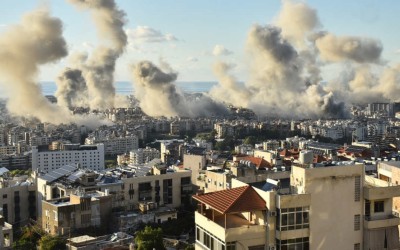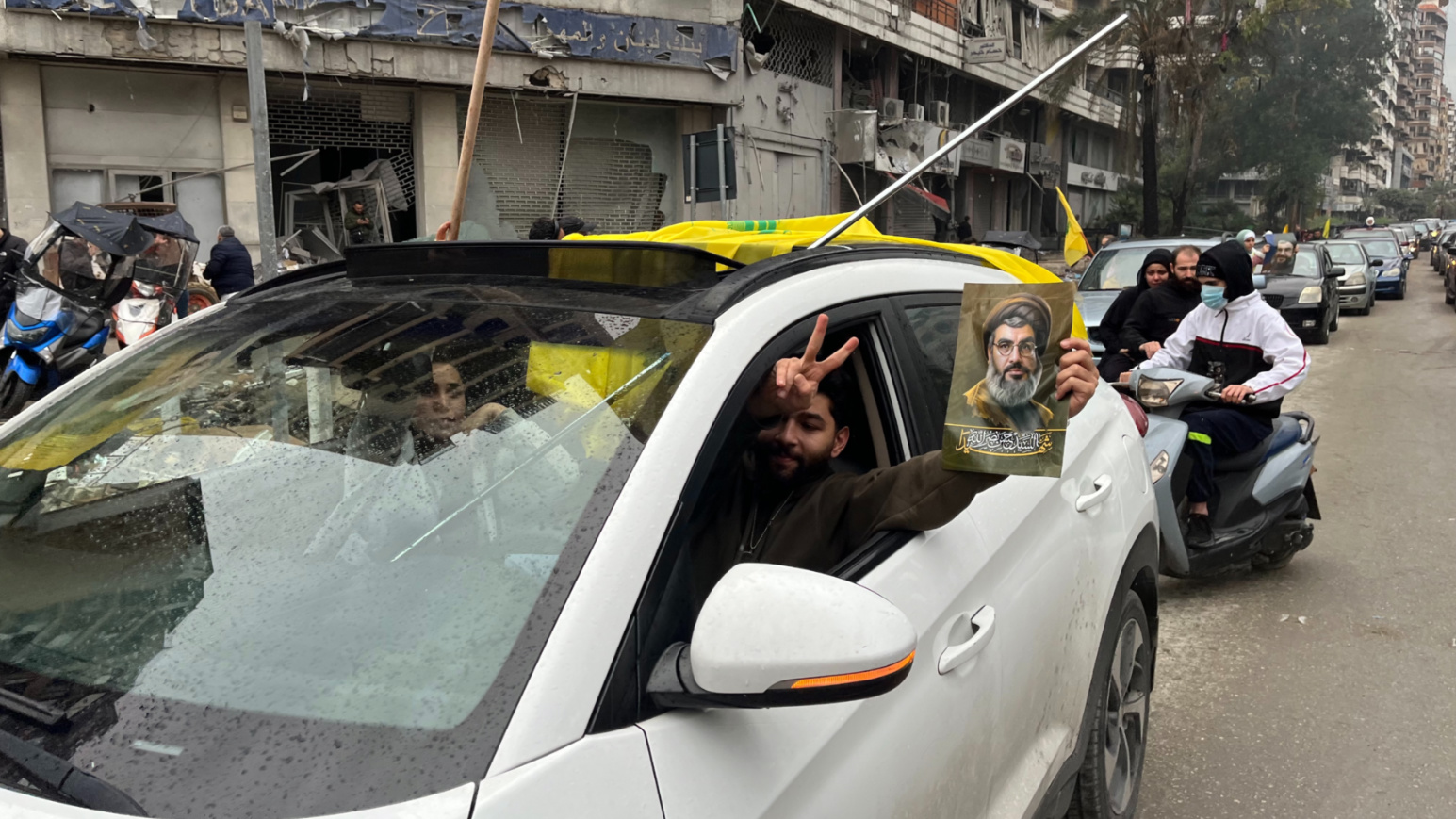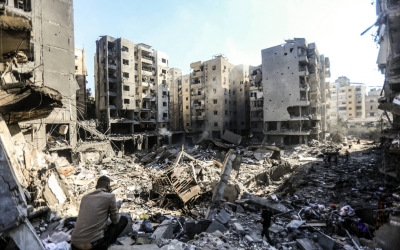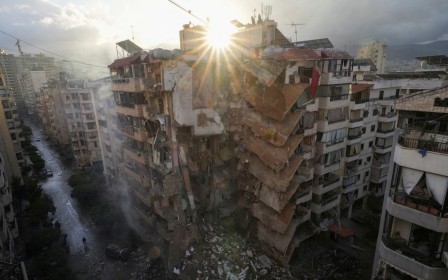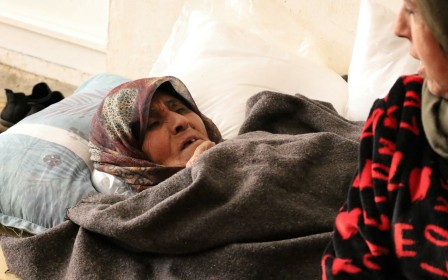Relief and joy as 'victorious' Lebanese return to their homes in Beirut's Dahiyeh
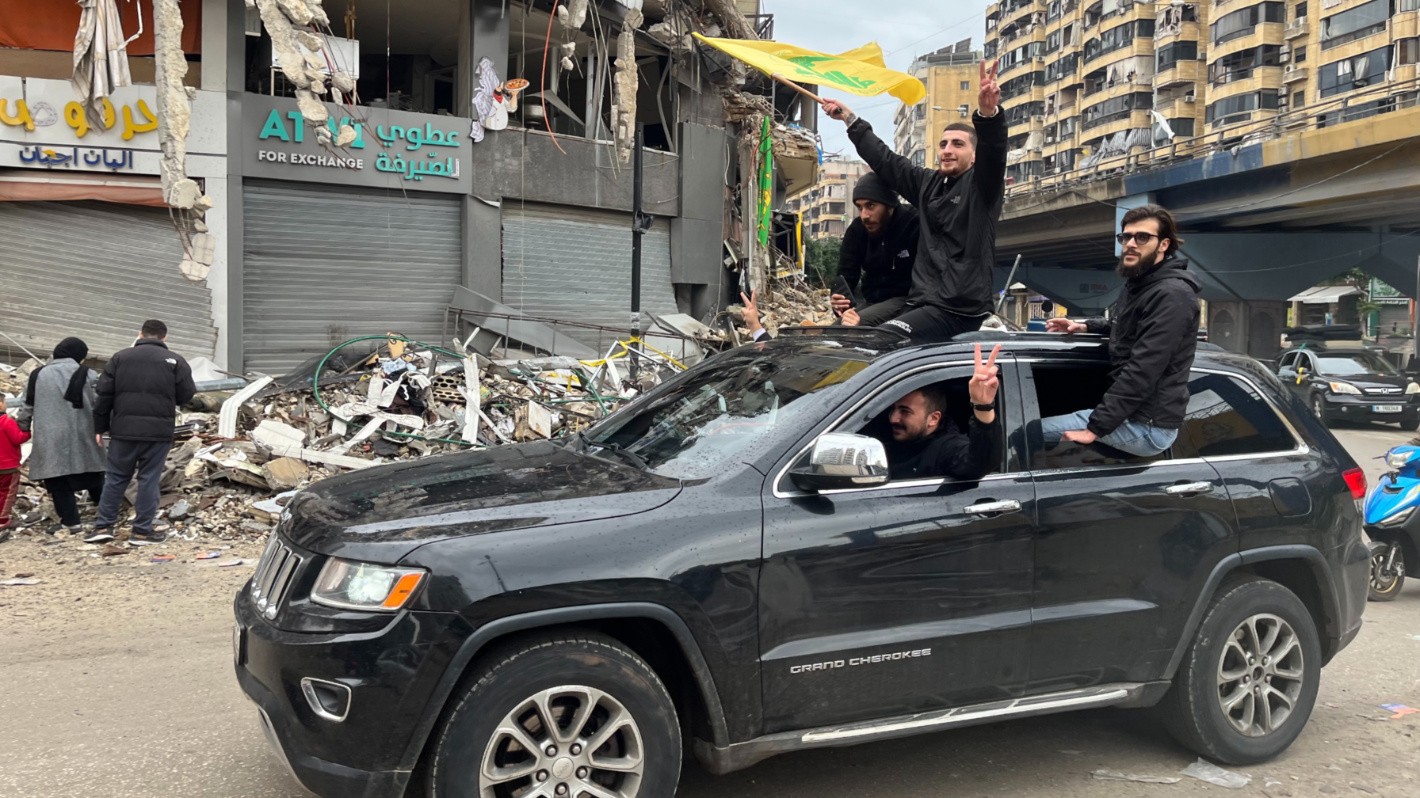
In the early hours of Wednesday, just as the ceasefire between Hezbollah and Israel went into effect, tens of thousands of displaced people were already returning to their homes across Lebanon.
The streets of Beirut, as well as northern, eastern and southern Lebanon, were filled with cars and people - many celebrating the end of the fighting as they headed toward the heavily devastated areas.
“As Sayyed said, we will definitely be victorious,” said Mohammed, referring to the late Hezbollah leader Hassan Nasrallah, who was killed in a massive Israeli strike on Dahiyeh, Beirut’s southern suburbs, in September.
Mohammed then sped off on his friend’s motorcycle to join other Dahiyeh residents searching for their homes amid the rubble of hundreds of pulverised buildings.
Instead of typical greetings, people were meeting each other with “thank God you are safe”, as they took stock of the vast devastation caused by Israeli bombing in the densely populated area.
New MEE newsletter: Jerusalem Dispatch
Sign up to get the latest insights and analysis on Israel-Palestine, alongside Turkey Unpacked and other MEE newsletters
Over 3,800 people were killed in Israel’s attacks on Lebanon over the past year, since hostilities began a day after the outbreak of the war on Gaza in October 2023.
The fighting escalated into a full-blown war in late September, when Israel launched an extensive bombing campaign across the country followed by a ground invasion.
Despite the widespread destruction and bloodshed, and even as Israel continued bombing Lebanon until the final hour before the US-brokered ceasefire took effect, a sense of jubilation filled the air.
For Mohammed, whose homes in both Dahiyeh and the northeastern Hermel district were destroyed, everything felt “great” after witnessing “the enemy’s army withdraw”.
“I am not sad,” he said. “We sacrificed something for Lebanon.”
Relentless Israeli attacks over the past two months have reduced Dahiyeh to a shadow of its former self.
Waving the flags of Hezbollah and its political ally Amal, people honked incessantly and played Hezbollah anthems as they transported mattresses and belongings piled atop their cars.
People drove around holding pictures of Nasrallah out of their windows, while some shouted slogans in support of the slain popular leader.
Some expressed their joy through celebratory gunfire into the air. During the war, gunfire had been used by people to warn others of an impending Israeli bombing, signalling them to leave their homes immediately.
Amidst the celebration, Mona and her children inspected the remains of their destroyed home.
“We are victorious,” she said, smiling while trying to salvage any belongings she could find.
“Everything can be replaced; what matters is that we are safe,” she added, expressing her hope for Lebanon to “recover” and be rebuilt after this conflict.
‘Lebanon needs a miracle’
Not everyone in the area was celebrating.
Ahmad, a taxi driver living on Mar Elias Street in central Beirut, was heading to the Haret Hreik neighbourhood in Dahiyeh to buy glass for his home after Israeli forces bombed his building just hours before the ceasefire took effect.
On Tuesday evening, he was stuck in traffic in the Ras Beirut district when he suddenly heard an explosion behind him as an Israeli air strike hit a building in the area.
Moments later, he received a call informing him that his daughters were stranded alone in the streets of Mar Elias because Israel had bombed his building as well.
“There is no hope, Lebanon will never go back to what it was,” he said. “Lebanon needs a miracle from God.”
It had been months since Ahmad visited Dahiyeh, which is often frequented by manufacturers, mechanics and builders looking to buy fair-priced materials.
Residents expressed hope that the heavily hit area will be rebuilt, and that they will be able to live in their homes again.
Mercy Corps’ Lebanon Crisis Analysis Team estimated Lebanon’s economic losses from the war to be equivalent to $1.15 billion, or 6.4 percent of the economic crisis-hit country’s GDP.
“With over half the population now living below the poverty line, resources growing scarce, and more than one million displaced people enduring the bitter cold of winter without adequate shelter or winter weather supplies, the worst civilian impacts could still be ahead,” Laila al-Amine, the agency’s Lebanon director, said in a statement.
Middle East Eye delivers independent and unrivalled coverage and analysis of the Middle East, North Africa and beyond. To learn more about republishing this content and the associated fees, please fill out this form. More about MEE can be found here.


